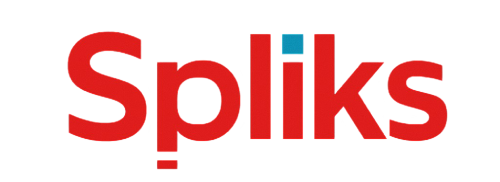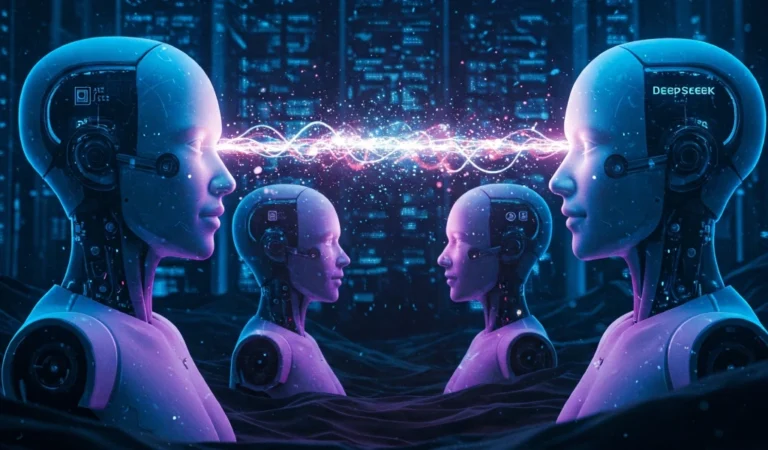Imagine a world where the top AI models—ChatGPT, Gemini, Claude, and DeepSeek—decided to break down their virtual silos and share everything they know. What would that look like? A superintelligence revolution or a privacy nightmare? Let’s dive into the future we’re not prepared for—but might be walking into.
The Hypothetical AI Alliance
Artificial Intelligence tools today are built by competing tech giants—OpenAI, Google, Anthropic, and DeepSeek. Each company fiercely guards its data, model architecture, and training techniques. But what if, in 2025 or beyond, a global agreement or a technological shift enabled them to collaborate rather than compete?
Picture This:
- ChatGPT’s conversational depth combines with Gemini’s real-time web access.
- Claude’s ethical reasoning fuses with DeepSeek’s code-generation mastery.
- The result? An AI supermodel with vast general intelligence, deep empathy, real-time awareness, and unparalleled problem-solving ability.
Sounds great, right? Not so fast.
The Power of Shared Intelligence
Let’s break down what each AI brings to the table and what mutual sharing could mean:
ChatGPT (OpenAI)
- Strength: Natural conversation, contextual memory, multilingual support.
- Value in collaboration: Enables smoother, human-like responses across all models.
Gemini (Google)
- Strength: Integration with Google Search, live web data, and real-time facts.
- Value in collaboration: Keeps all AIs updated and grounded in current reality.
Claude (Anthropic)
- Strength: Ethical alignment, long-form comprehension, thoughtful outputs.
- Value in collaboration: Could serve as a moral compass and reduce hallucinations.
DeepSeek (DeepSeek AI)
- Strength: High-performance code writing, problem solving, and multilingual programming.
- Value in collaboration: Elevates technical precision across the board.
By fusing knowledge bases, models, and reasoning layers, the AI world could take a massive leap toward general artificial intelligence (AGI). But at what cost?
Privacy and Security: The Real Risk
Data sharing at this scale wouldn’t just mean better search results and smarter responses. It would also mean massive exposure to potential misuse:
Key Concerns:
- User Data Leakage: If these AIs start pooling user interactions, your private chats, documents, or code snippets might be indirectly exposed.
- Corporate Espionage: Businesses relying on AI tools for internal tasks could face data leaks across platforms.
- Geopolitical Tensions: Which countries get access to the shared model? Who governs the ethics of this intelligence?
Even if the collaboration is technical, not personal, the sheer complexity makes data separation and governance nearly impossible.
Would the World Be Smarter or More Controlled?
Let’s say privacy issues are solved. Would a shared-AI ecosystem benefit humanity? The answer is… complicated.
Potential Benefits:
- Unified medical insights: AI could diagnose rare diseases and recommend global best practices instantly.
- Accelerated scientific research: Data from different labs could be analyzed collaboratively in seconds.
- Hyper-efficient automation: Businesses would get a truly universal assistant, saving billions in labor and resources.
Potential Dangers:
- Censorship at scale: A single governing model could suppress ideas worldwide under the guise of safety.
- Monopoly of truth: If the AI decides what’s right or wrong, misinformation could be redefined.
- Loss of competition: Without rival systems, innovation might stall or become biased.
The line between helpful and harmful would get blurrier with every megabyte of data shared.
Would AI Models Learn from Each Other?
Yes—and that’s both fascinating and dangerous.
When AI models like ChatGPT and Gemini learn from one another’s training data, they don’t just double in knowledge—they create new interpretations, fill gaps, and reconstruct patterns. It’s like two master chefs trading recipes and creating an entirely new cuisine.
But:
- If one model has bias, others could adopt it.
- If one misinterprets a fact, the error could spread.
- If one is tricked by malicious data, the rest follow.
“Garbage in, garbage multiplied.”
Could Human Jobs Be at Risk?
The more these AIs share and improve each other, the less human input is required. We could see:
- Content creators replaced by collaborative AI-generated media.
- Customer service powered entirely by unified LLMs.
- Programmers sidelined by DeepSeek-enhanced AI coding across all platforms.
This superintelligent collective could spark the most productive (or disruptive) era in tech history.
Will This Ever Happen?
While it sounds futuristic, partial integrations are already happening:
- ChatGPT can browse the web (like Gemini).
- Some AI models are open-sourced, allowing other models to learn from them.
- APIs allow cross-platform plugins and embeddings.
But true sharing—data, memory, architecture, and ethical layers—would require:
- International agreements
- Shared governance protocols
- Iron-clad privacy tools (likely using blockchain or quantum security)
Bottom Line: Should We Be Worried?
If ChatGPT, Gemini, Claude, and DeepSeek start sharing data, the world will change—fast. Whether for good or bad depends on how humans control that power.
Key Questions to Ask:
- Who owns the knowledge AI creates?
- Should competitors collaborate if the outcome helps society?
- Are we building tools—or intelligent entities with their own agency?
Final Thoughts
The idea of AI models combining forces isn’t just science fiction anymore. It’s a possible, even probable, future. As users, developers, and citizens, we need to demand transparency, ethics, and accountability—before the tech outpaces our ability to regulate it.
Until then, keep asking smart questions. Because the AIs are listening—and maybe, one day, they’ll be answering each other too.


